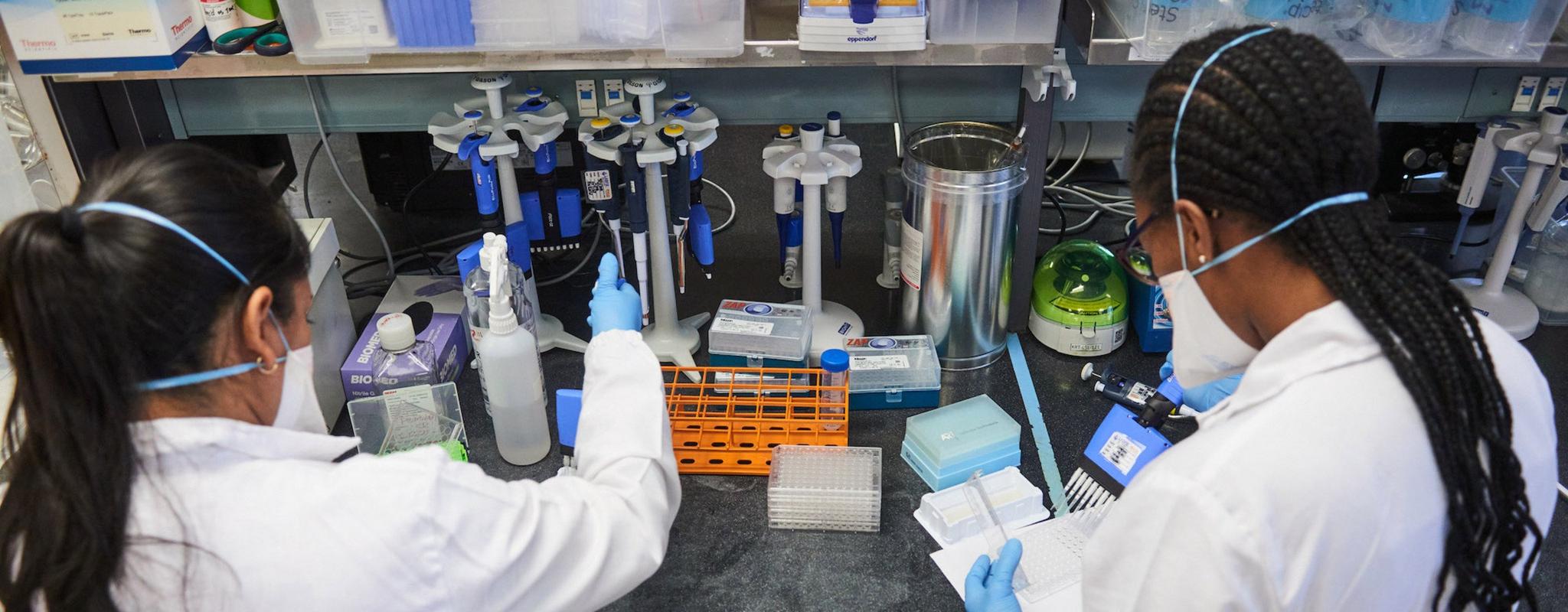
Research environment: people, culture and openness
Research to solve the urgent health challenges facing everyone depends on thriving research environments that are open, engaged, equitable, ethical and efficient.
We believe that excellent research happens in environments where people from all backgrounds are treated with respect, supported and enabled to thrive.
Solving the planet’s most urgent health challenges requires creative and high-quality ideas, that must be open and accessible to everyone, to achieve the greatest impact and save lives more quickly. It also requires ethically sound research that is engaged with the needs of the communities it is addressing.
We see these as fundamental and necessary changes to the way that research usually happens and they are at the heart of the positive and inclusive research cultures we want to encourage. Only when these approaches are considered can we say that the research we fund is truly for the health challenges facing everyone.
By taking a holistic view of the environmental factors that impact research outcomes, Wellcome can achieve its ambition to be an inclusive funder of research to improve health for everyone.
What we're doing
Our work cuts across Wellcome’s funding teams, supporting them to deliver their programmes of work on discovery research, climate and health, infectious disease and mental health.
Our ambition is that the research we fund and the processes by which we do this are open, engaged, ethical and efficient.
In addition to our internally focused work, we aim to contribute to the wider research ecosystem to ensure that Wellcome researchers have access to the tools and skills to maximise the impact of their work. This includes convening community events, policy work, supporting infrastructure and occasionally, offering funding for relevant activities.
What do we mean by 'research environment'?
Typically, the strength of a ‘research environment’ is judged by the excellence of the infrastructure it provides for the research taking place.
Wellcome’s definition of the research environment goes beyond this to consider the culture and behaviours that create excellent research practice. For us, this includes research that is inclusive in design and practice, ethical and engaged with relevant community stakeholders. An open and transparent research process is a tool to enable these practices and to enable the outputs of the research to have the maximum impact.
Examples of our work
- Europe PMC (PubMed Central) – an online database offering free access to published biomedical research
- Investigating the effects of open sharing commitments
- Global Infectious Disease Ethics Collaborative (GLIDE) – a platform for identifying and analysing ethical issues in infectious disease
- Emerging Cultures – a grant for a sociological and anthropological study of emerging research cultures in Wellcome’s 4-Year PhD Programmes
- In2Research – a social mobility programme that supports people from low socio-economic backgrounds to progress to postgraduate research
How this applies to your research
As part of our goal to become a more inclusive funder and support research that is inclusive in design and practice, we made commitments to foster positive and inclusive research cultures as part of the application criteria on most of our awards.
As part of this, our Discovery Award applications feature elements of the Resume for Research and Innovation (R4RI), otherwise known as the Narrative CV. This gives researchers more flexibility in how they demonstrate their diverse skills and contributions to research.
Wellcome has a number of research policies related to open and ethical research and we recommend that researchers consult these when designing funding applications and delivering successful awards.
Appropriate engagement with key stakeholders throughout the research lifecycle supports the production of high-quality research that is rooted within the needs of those most affected. Wellcome will consider the costs of delivering engaged research within funding applications.
Looking for research funding?
Wellcome does not have a Research Environment funding scheme, however, it is a theme within all research grant funding and may be a criterion within other procurement processes.
Our team

Dan O’Connor
Head of Research Environment

Hannah Hope
Open Research Lead
Wellcome

Carleigh Krubiner
Bioethics Lead
Wellcome

Shomari Lewis-Wilson
Senior Manager, Research Culture and Communities
Wellcome
If you have general enquiries or ideas related to our Research Environment work, please contact us on


